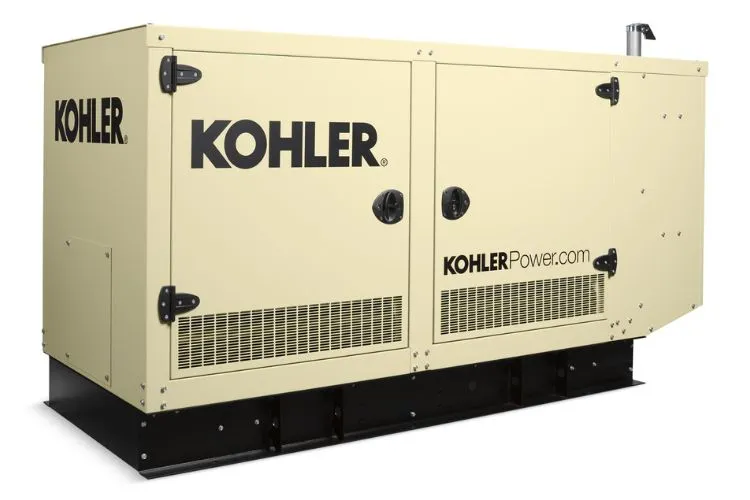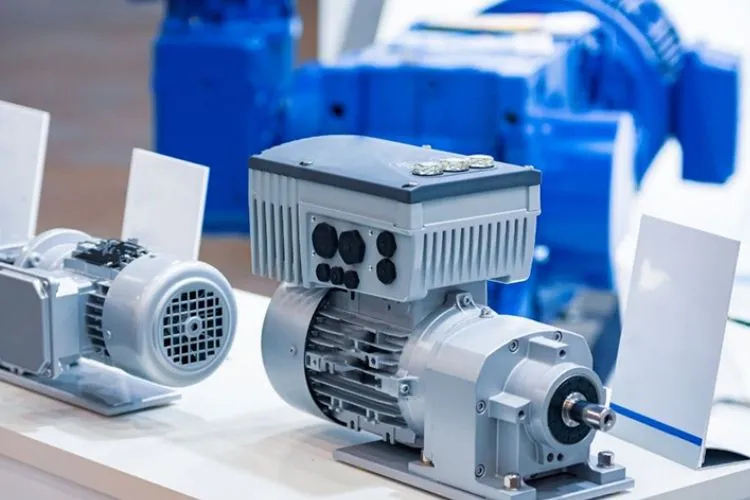The operational frequency of a generator is a critical factor to consider for ensuring seamless compatibility with various applications and machinery.
Around the globe, 60 Hz and 50 Hz are the two predominant frequency standards for alternating current (AC) in electric power distribution.
Sometimes, there may arise a situation where a generator designed for 60 Hz needs to be converted to operate at 50 Hz. So, can you convert a 60 Hz generator to 50 Hz?
This comprehensive guide will elucidate the intricacies of generator frequency conversion for such requirements without compromising the generator’s performance or the safety of the connected equipment.

Understanding Generator Frequency
The frequency of a generator refers to how often the current alternates per second, represented in hertz (Hz). In many countries, the standard frequency is 60 Hz, while in others, it is 50 Hz.
The distinction is not merely numerical; it has real-world implications for the operating efficiency and lifespan of electrical devices.
Appliances and equipment are typically engineered to function optimally at a specific frequency. Operating these devices on an unsuitable frequency can lead to malfunctions, reduced efficiency, or even permanent damage.
Can You Convert A 60 Hz Generator To 50 Hz?
Converting a generator’s operating frequency from 60 Hz to 50 Hz is theoretically possible, encompassing several technical considerations.
There are various methods for achieving this conversion, each with its own set of challenges and requirements. It involves alterations either in the mechanical domain, the electrical domain, or a combination of both.
How Generator Frequency Conversion Works
A generator’s frequency is determined by two key factors: the speed at which the generator’s engine operates (measured in revolutions per minute, or RPM) and the design of the alternator.
Altering the frequency output of a generator requires modifications to one or both of these factors.
Mechanical Conversion Methods
Altering the Engine Speed
The speed of the engine is directly proportional to the frequency. To reduce the frequency, the engine’s speed must be lowered. This can be done through careful recalibration of the engine control system.
For instance, if a generator is designed to operate at 1800 RPM to deliver power at 60 Hz, its speed would need to be adjusted to approximately 1500 RPM to produce power at 50 Hz.
This adjustment must be done cautiously, as it can impact the mechanical integrity and longevity of the engine and alternator.
Engine and Alternator Considerations
In addition to engine speed adjustment, the alternator itself may need to be reconfigured or replaced to handle the new frequency without compromising output quality. This could involve changing the alternator windings or adjusting the magnetic flux.
Electronic Conversion Methods
Use of Frequency Converters
An electronic frequency converter can be used to change the electrical output frequency without modifying the generator’s engine speed.
This method often requires the addition of an electronic unit that rectifies the AC into direct current (DC) and then inverts it back to AC at the desired frequency. Such converters must be carefully chosen to handle the power output of the generator.
Generator Control System Adjustments
Modern generators often come with advanced control systems that allow for precise manipulation of various operational parameters, including frequency.
Some control systems can be reprogrammed to manage the engine speed and load conditions in a manner conducive to frequency conversion.
Potential Issues and How to Overcome Them
When converting the frequency of a generator, there are potential hurdles that one might encounter. It’s crucial to address these issues proactively to ensure a successful conversion.

Efficiency and Power Output
Converting generator frequency can impact the power output and efficiency of the unit. Careful recalibration ensures that the generator operates within design tolerances.
This involves rebalancing the load and possibly de-rating the generator to account for the changes in frequency.
Converter Sizing and Compatibility
A common issue is the incorrect sizing of electronic frequency converters, leading to inefficiencies or potential overload. The converter should have a rating that matches or exceeds the generator’s power output to function efficiently.
Overcoming Technical Challenges
Professional expertise is required to perform precise adjustments to the governor, control systems, and alternator parameters. This expertise ensures the generator continues to provide a reliable and efficient power supply after conversion.
Case Studies/Examples
A range of practical applications highlights both challenges and solutions in the field of generator frequency conversion. A case in point is an offshore oil platform that required conversion of a 60 Hz generator to 50 Hz to comply with European equipment standards.
They employed a robust electronic frequency converter along with mechanical adjustments to achieve the desired frequency while upholding the generator’s output and reliability.
Pro Tips
Before embarking on a generator frequency conversion project, consider these guidelines:
- Always consult the generator’s operating manual and manufacturer’s recommendations.
- Evaluate the potential impact on warranties and legal compliance.
- Consider the economic feasibility of conversion versus purchasing a generator that meets your frequency needs.
You may also find useful: How Does A Generator Create Electricity?
Frequently Asked Questions (FAQs)
Can converting a 60 Hz generator to 50 Hz damage the equipment?
If executed improperly, converting a generator’s frequency could lead to damage due to inefficient operation. Employing professionals for conversion is paramount to prevent such issues.
How does frequency conversion affect a generator’s warranty?
Altering a generator in a way that’s not supported by the manufacturer typically voids any existing warranty. It’s important to assess the impact on warranty coverage before proceeding with a conversion.
Are some generators built to operate at both 60 Hz and 50 Hz frequencies?
Certain modern generators are designed with dual-frequency capabilities, allowing them to switch between frequencies as needed without requiring physical modifications.
What are the cost considerations when converting a generator’s frequency?
The costs can vary considerably, depending on the chosen method and the generator’s model. Electronic frequency converters, for example, can be costly, while mechanical adjustments might necessitate professional services.
Conclusion:
The conversion of a generator from 60 Hz to 50 Hz can be complex. It demands meticulous planning and understanding of both mechanical and electrical aspects of generator operation.
When approached with proper care and expertise, it can be a viable solution, ensuring equipment compatibility across different frequency standards.
It is always recommended to consult with professionals or the manufacturer to achieve a conversion that maintains generator efficiency and reliability while meeting your specific power needs.
